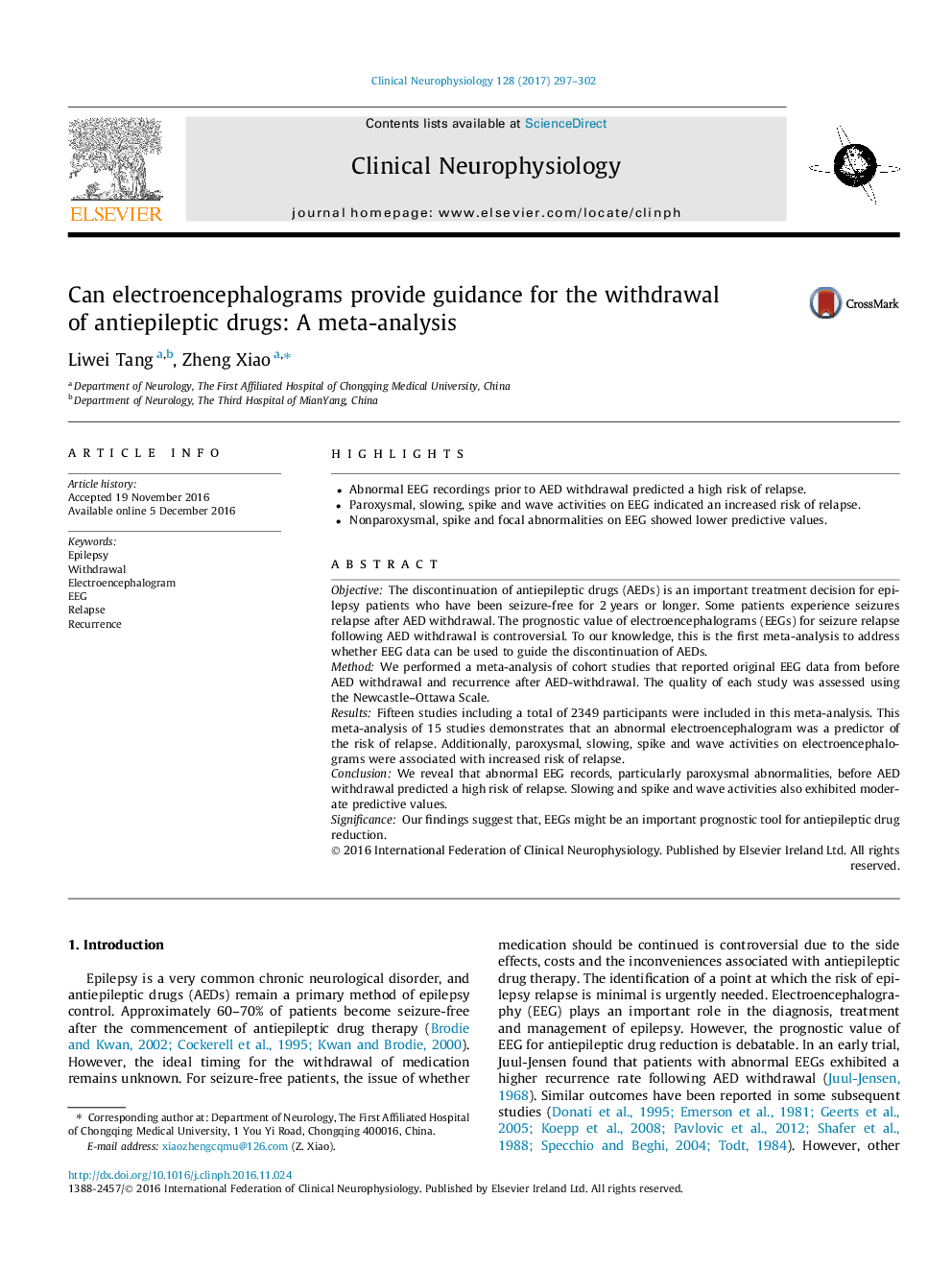| Article ID | Journal | Published Year | Pages | File Type |
|---|---|---|---|---|
| 5627794 | Clinical Neurophysiology | 2017 | 6 Pages |
â¢Abnormal EEG recordings prior to AED withdrawal predicted a high risk of relapse.â¢Paroxysmal, slowing, spike and wave activities on EEG indicated an increased risk of relapse.â¢Nonparoxysmal, spike and focal abnormalities on EEG showed lower predictive values.
ObjectiveThe discontinuation of antiepileptic drugs (AEDs) is an important treatment decision for epilepsy patients who have been seizure-free for 2Â years or longer. Some patients experience seizures relapse after AED withdrawal. The prognostic value of electroencephalograms (EEGs) for seizure relapse following AED withdrawal is controversial. To our knowledge, this is the first meta-analysis to address whether EEG data can be used to guide the discontinuation of AEDs.MethodWe performed a meta-analysis of cohort studies that reported original EEG data from before AED withdrawal and recurrence after AED-withdrawal. The quality of each study was assessed using the Newcastle-Ottawa Scale.ResultsFifteen studies including a total of 2349 participants were included in this meta-analysis. This meta-analysis of 15 studies demonstrates that an abnormal electroencephalogram was a predictor of the risk of relapse. Additionally, paroxysmal, slowing, spike and wave activities on electroencephalograms were associated with increased risk of relapse.ConclusionWe reveal that abnormal EEG records, particularly paroxysmal abnormalities, before AED withdrawal predicted a high risk of relapse. Slowing and spike and wave activities also exhibited moderate predictive values.SignificanceOur findings suggest that, EEGs might be an important prognostic tool for antiepileptic drug reduction.
